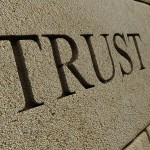
The impact of corporate governance on public trust
“…at the News of the World, quite apart from phone hacking, there was a failure of systems of management and compliance. None of the witnesses were able to identify who was responsible for ensuring compliance with an ethical approach to journalism and there was a general lack of respect for individual privacy and dignity”, said Lord Leveson in his inquiry into the culture, practices and ethics of the press in the UK.
He further went on to say, “Corporately, the News of the World and News International misled the Committee about the true nature and extent of the internal investigations they professed to have carried out in relation to phone hacking; by making statements they would have known were not fully truthful; and by failing to disclose documents which would have helped expose the truth. Their instinct throughout, until it was too late, was to cover up rather than seek out wrongdoing and discipline the perpetrators, as they also professed they would do after the criminal convictions. In failing to investigate properly, and by ignoring evidence of widespread wrongdoing, News International and its parent News Corporation exhibited wilful blindness, for which the companies’ directors—including Rupert Murdoch and James Murdoch—should ultimately be prepared to take responsibility…”
Corporate leadership, or the lack of it, debases the trust we have in organisations.
According to the 2012 Edelman Trust Barometer, trust in the media in Australia and many other countries is very low (Fig 1).
More generally, as an industry, the media are one of the less trusted industries (Fig 2).
It is only a short step in logic to associate the findings of the Leveson inquiry about the poor governance and lack of ethical approach to news gathering and reporting at The News of the World specifically and News International generally and the lack of trust in the media in the markets where New Limited mastheads dominate.
The impact of a lack of trust on corporate performance
If that short step in logic which associates poor corporate governance and a culture of denial of responsibility by senior executives with a lack of trust by the public is acceptable, then what are the lessons to be learned for those of us charged with leading an organisation?
Watson Wyatt’s WorkUSA 2002 survey found that fewer than two out of five (39 percent) employees trust senior leaders at U.S. companies. Additionally, according to Watson Wyatt, “Organizations with high trust outperform organizations with low trust by nearly 3 times”.
Developing trust
Trust is developed through four elements of character and competence, according to an Asia Development Bank Report:
- Integrity. According to Dictionary.com, integrity is “adherence to moral and ethical principles; soundness of moral character; honesty”. Men and women who are imbued with integrity stand for something, make and keep commitments to themselves, and remain open. Time and again, this may require courage.
- Intent. Intent refers to motives, agendas, and resulting behaviours. Trust grows when all three are candid and based on mutual interest.
- Capabilities. Capabilities are the talents, attitudes, skills, knowledge, and styles we leverage to deliver results. Capable people know where they are going, run with their strengths (and compensate for weaknesses), and keep themselves relevant.
- Results. Results crown credibility to offer visible, tangible, and measurable contributions that can be evaluated by others. Results are delivered by performers who expect to win, take responsibility for results, and finish strong.
Steven Covey in his book, The Speed of Trust: The One Thing that Changes Everything, describes thirteen behaviours required to build organisational trust and their opposites as described in Table 1.
The behaviours to develop trust can be learned. The level of trust people have in us as leaders can be improved. The question we need to know the answer to is not, “In whom do we trust?” but rather “Who trusts us?” The answer could be having a dramatic effect on our organisation’s results.









